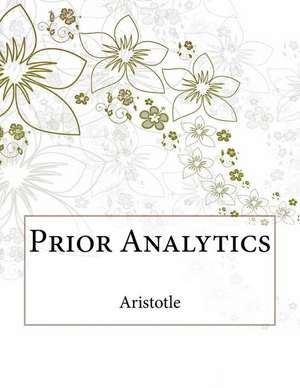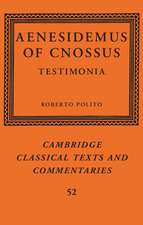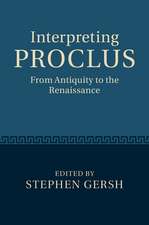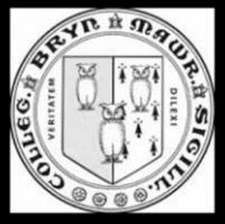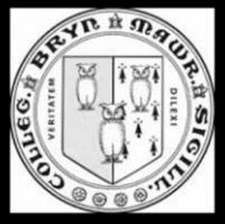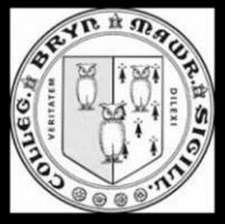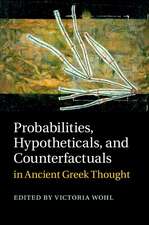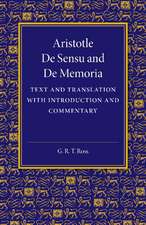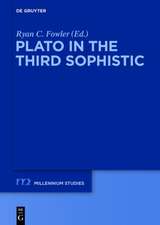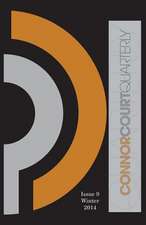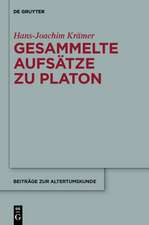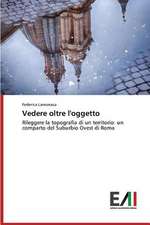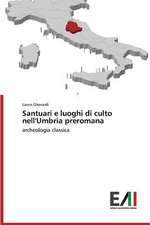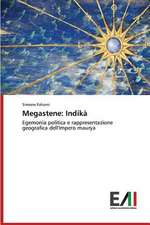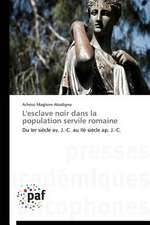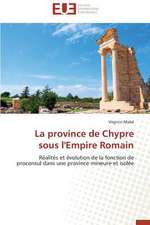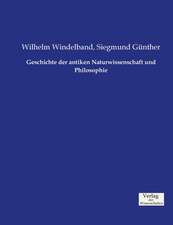Prior Analytics
Autor Aristotleen Limba Engleză Paperback
| Toate formatele și edițiile | Preț | Express |
|---|---|---|
| Paperback (2) | 141.90 lei 3-5 săpt. | +28.20 lei 6-12 zile |
| Hackett Publishing Company – 14 sep 1989 | 141.90 lei 3-5 săpt. | +28.20 lei 6-12 zile |
| CREATESPACE – | 158.06 lei 3-5 săpt. |
Preț: 74.28 lei
Nou
Puncte Express: 111
Preț estimativ în valută:
14.21€ • 15.20$ • 11.85£
14.21€ • 15.20$ • 11.85£
Carte indisponibilă temporar
Doresc să fiu notificat când acest titlu va fi disponibil:
Se trimite...
Preluare comenzi: 021 569.72.76
Specificații
ISBN-13: 9781530979042
ISBN-10: 1530979048
Pagini: 68
Dimensiuni: 216 x 279 x 4 mm
Greutate: 0.18 kg
Editura: CreateSpace Independent Publishing Platform
ISBN-10: 1530979048
Pagini: 68
Dimensiuni: 216 x 279 x 4 mm
Greutate: 0.18 kg
Editura: CreateSpace Independent Publishing Platform
Recenzii
This volume is an impressive tour de force. It is state-of-the-art Aristotle: it employs the most recent philological, philosophical, and logical advances which since the 1970's at least have rendered previous translations and commentaries obsolete. The translation is the first to take account of the recent epistemically orientated natural-deduction approach, which restores Aristotle's reputation as a consummate logician and reveals much more of Aristotle's method than previous approaches. Every page of Robin Smith's commentary shows extensive learning, taste, imagination, and skill. . . . An important and lasting contribution, not only to Aristotle scholarship and to the history of logic, but also to the history of philosophy itself. --John Corcoran, SUNY Buffalo
The translator has adhered to the recent tendency in Aristotle translations to translate Greek technical terms with one-to-one English equivalents as far as possible. This enables the Greekless reader to independently assess Aristotle's variations in terminology. Debatable points of translation and general interpretation are taken up by the translator in an extensive commentary. Such commentary is essential for any nonspecialist attempting to read the Prior Analytics. . . . A substantial twenty-page Introduction provides an overview of Aristotle's logic from the point of view of the recent literature. It is an excellent starting point for anyone wishing to gain an up-to-date perspective on this scholarship. . . . This is the volume that contemporary logicians should and will reach for when they want to learn about the origin of their field. --Michael Scanlan, Mathematical Reviews
The translator has adhered to the recent tendency in Aristotle translations to translate Greek technical terms with one-to-one English equivalents as far as possible. This enables the Greekless reader to independently assess Aristotle's variations in terminology. Debatable points of translation and general interpretation are taken up by the translator in an extensive commentary. Such commentary is essential for any nonspecialist attempting to read the Prior Analytics. . . . A substantial twenty-page Introduction provides an overview of Aristotle's logic from the point of view of the recent literature. It is an excellent starting point for anyone wishing to gain an up-to-date perspective on this scholarship. . . . This is the volume that contemporary logicians should and will reach for when they want to learn about the origin of their field. --Michael Scanlan, Mathematical Reviews
